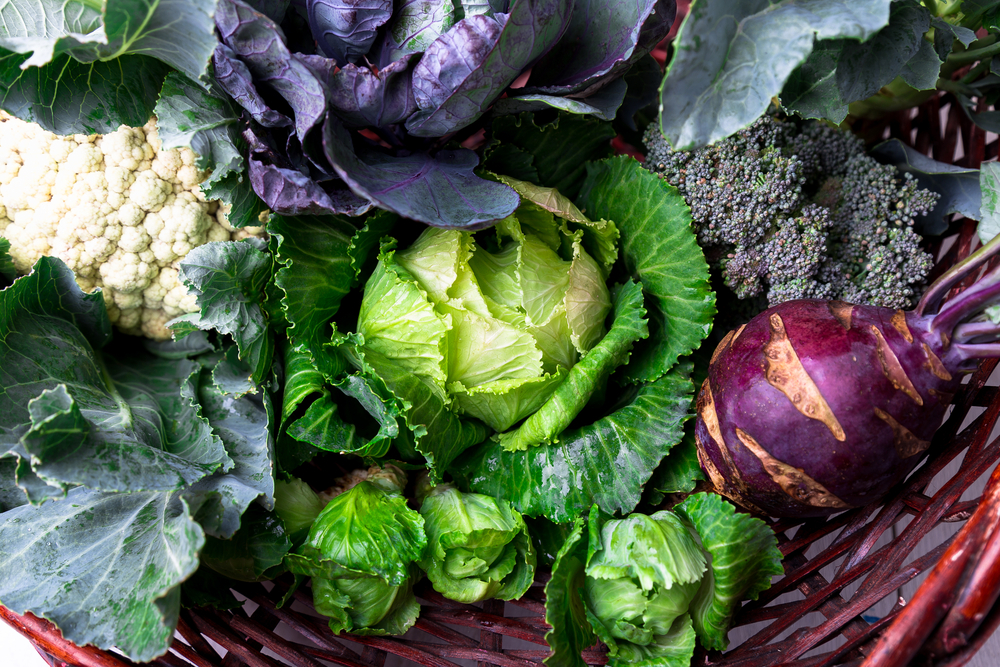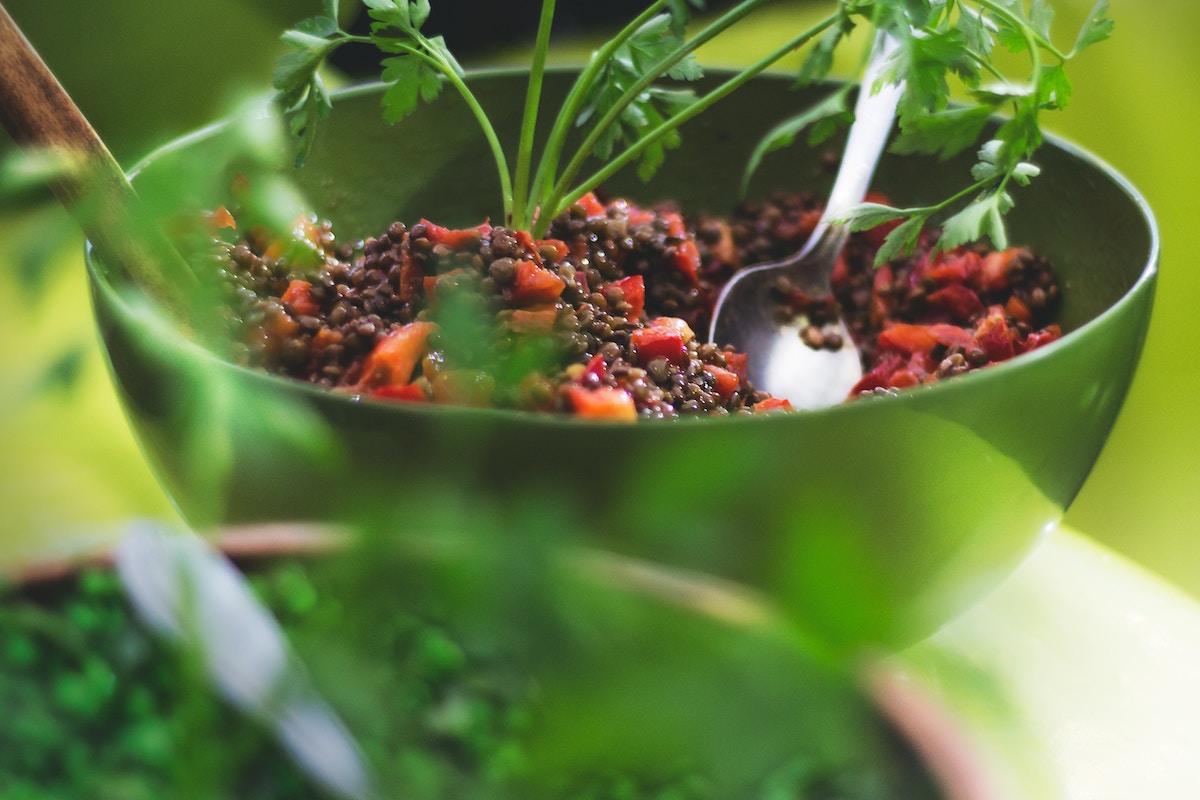By: Tayler Glenn
By now you probably know that processed and salty foods are culprits when it comes to bloating, but it’s not just unhealthy snacks you’ve got to keep an eye on. Even the healthiest foods can sneakily cause the gas and bloating you’re trying so hard to avoid. Curious? Here are five of the most common healthy, bloat-causing foods, and a few ideas for healthy things to eat instead!
What Is Bloating?
Bloating, in short, is when your stomach feels swollen or enlarged and it’s a very common (and unpleasant) feeling that most of us have experienced at one point or another. It generally happens after eating, and is usually caused by air, gas, or other digestive issues caused by the foods you’ve just ingested.
While all bacteria — good or bad — creates some amount of gas during your digestion process, there are certain foods that are more likely to trigger bacteria which leads to bloating.
Bloat-Causing Foods
Sparkling Drinks
Sodas, water, and even kombucha can contribute to a mean belly bloat. These drinks contain high amounts of carbon dioxide to give you the bubbles you’re after, but some of that gas can get trapped in your digestive system. Kombucha, despite its probiotic properties, contributes to bloat because of its sugar which can feed bacteria.
Alternatives: Still water (plain or with natural fruit flavors), coffee, and tea are all great alternatives to sparkling drinks. Just be sure to stay away from anything containing fake sweeteners or sugar.
Cruciferous Vegetables
Broccoli, cauliflower, cabbage, Brussels sprouts and kale are all on the nice list…until it comes to belly bloat. Each of these veggies is a bloat-causing food due to the non-digestible sugar called raffinose and an easily fermentable fiber called pectin. Don’t be quick to cut them out, though! These veggies contain powerful antioxidants and minerals that are important in your healthy diet, but maybe opt for cooked versions or save those dishes for after the beach.
Alternatives: Cooking these types of vegetables can help break down those pesky non-digestible fibers to give your system a helping hand or give fermented veggies like kimchi and sauerkraut a try! You also have plenty of other veggies, like spinach, cucumbers, lettuce, sweet potatoes, and zucchini.
Dairy Products
Many people notice bloating after enjoying dairy products, but not just the ones we’ve (sometimes wrongfully) labeled as unhealthy such as chocolate and cheese. You may also notice bloating after enjoying milk, cream cheese, and whey protein! The most common culprit? Lactose intolerance. This milk sugar is a pretty common problem with 65% of people having trouble digesting it. There’s also a lesser-known component of dairy called A1, a milk protein that can cause the same issues as lactose.
Alternatives: If you’re only experiencing slight issues, you may be one of the lucky lactose intolerant who can handle a little lactose in specific dairy foods. Often you can enjoy cream, butter, or fermented dairy like yogurt or kefir without too much of a problem. If you want to (or have to) play is safe, then opt for dairy-free alternatives such as nut or oat milks, plant-based protein, or try an over-the-counter lactase supplement.
Legumes
Beans & lentils all fall into the category of bloat-causing foods and, despite being healthy, may not be the best to have on your plate before a fitting. Both foods contain FODMAPs, a group of fermentable short-chain carbohydrates that are difficult to break down. These carbs are not easily absorbed in the small intestine which means that gut bacteria have more time to feed on the sugars to produce gas and bloating.
Alternatives: Soaking or sprouting your beans and lentils can help avoid the belly bloat, but opting for light lentils may help as well since they are generally lower in fiber than darker ones. Pinto beans and black beans may be more digestible options, especially after soaking, but you can also replace them with quinoa.
Sugar Alcohols
Sugar alcohols like aspartame and sucralose contribute to bloating and gas. Take sorbitol, for example. You’ve probably had it in gum and sugar-free candies, but not many know that this sweetener actually can’t be digested. This can cause water retention and, like other artificial sweeteners, may disrupt your microbiome and boost the bacteria that end up causing gas.
Alternatives: Read nutrition labels carefully and limit foods containing sucralose, aspartame, sorbitol, and saccharin. When in doubt, a good rule of thumb is to stick to whole foods!




Comments (0)